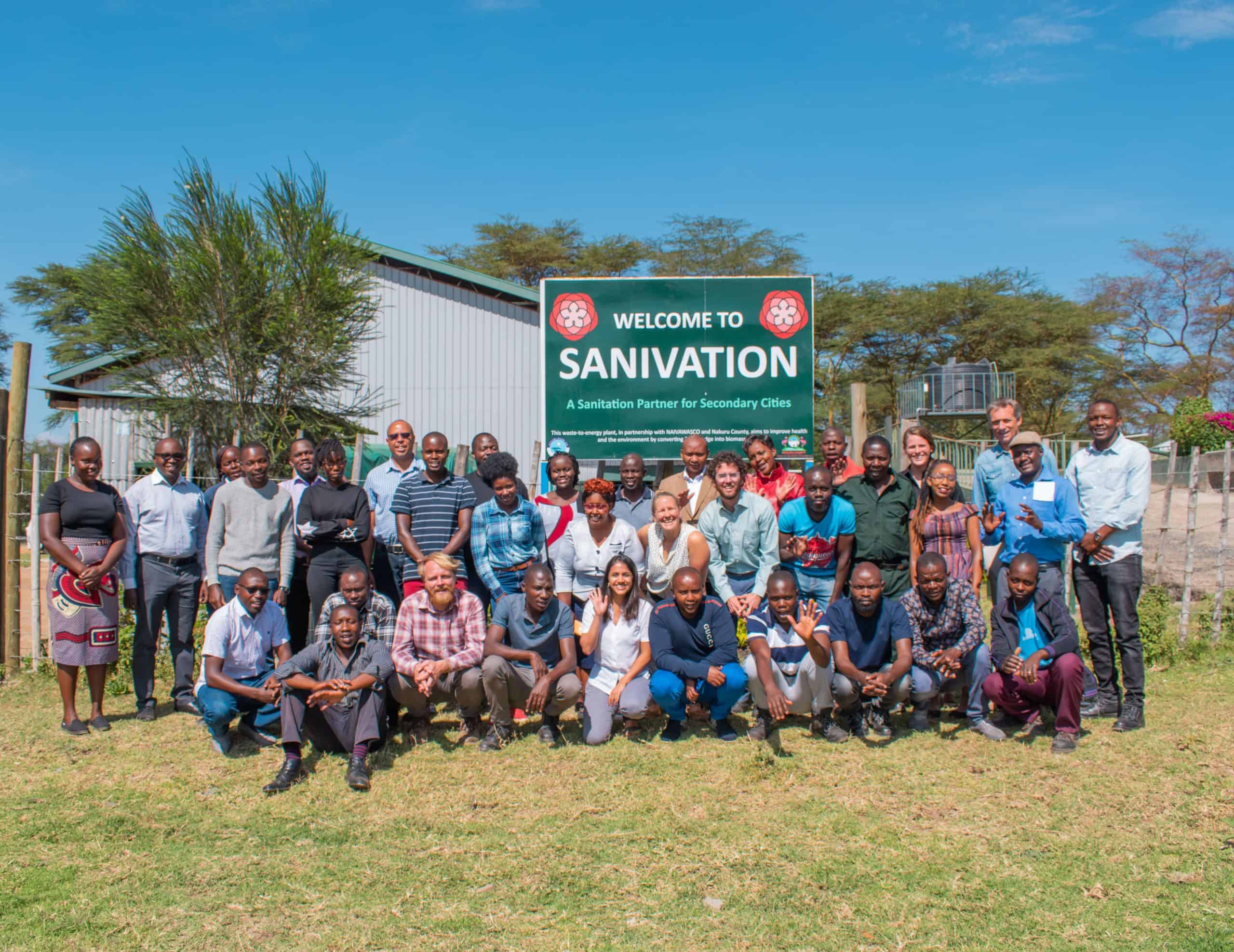Sanivation Limited is a waste treatment company that partners with local governments to help meet the growing waste processing need from septic tanks and pit latrines. Their model is to build and operate faecal sludge treatment plants so that they can be operationally sustainable. Through the KKCF funding, Sanivation will operate and maintain a fecal sludge treatment plant near Kakuma that will convert waste to low-carbon fuel briquettes. This will provide Kakuma with a safe and affordable place to dispose of human waste, at the same time provide local institutions with a source of sustainable fuel.
Company FAQs
What attracted you to the Kakuma/Kalobeyei area? Why did you choose to apply for the KKCF funding?
This project aligns with our mission to make urbanising communities sustainable. While the current resources are insufficient for Kakuma’s fast-growing population, we are eager to establish an infrastructure and model that will support a durable public service. We are also keen to prevent the consequences of unsafe waste dumping as is the current practice where waste is deposited in a landfill outside the camp, with the likely possibility of future ground water contamination as the camp grows.
What do you look forward to doing in Kakuma/Kalobeyei? How do you see your business growing in the next 5 years? What challenges have you had to overcome?
We will build and operate a fecal sludge treatment plant near Kakuma that converts waste into low-carbon fuel briquettes. The revenue from selling fuel will reduce our plant’s operational costs, supporting long-term sustainability. Our objective is to provide Kakuma with a safe and affordable solution for human waste disposal that is not too far from the camp.
Currently, human waste from Kakuma must be transported all the way to Lodwar for safe disposal, and inevitably, because of the long distance involved, it usually ends up being dumped near the camp. Building a waste disposal plant in Kakuma will decrease the environmental degradation and reduce the current cost of waste collection.
Our second objective is to provide local institutions with a source of sustainable fuel. Our waste conversion process mixes fecal sludge with sawdust. Although biomass is the most-consumed energy source in Kenya, its unsustainable and unimpeded consumption leads to mass deforestation that accelerates climate change. We intend to produce fuel for sale to institutions for use in their biomass boilers, thus replacing firewood, the impact being a reduction in the rate of mass deforestation.
Each ton of fuel sold will save an estimated 22 trees.
The grant will fund:
- Capital costs of a waste-to-value treatment plant.
- Sales costs to secure fuel purchasing contracts with UNHCR and local institutions.
- The plant’s operational costs and fuel production for 18 months, after which it will be operationally sustainable, and sufficient to fund itself.
Sanitation is an expensive public good, yet a private sector actor like Sanivation can make it feasible. Kakuma faces extreme funding constraints that prevent stakeholders from setting up sanitation infrastructure and funding for consistent and effective waste treatment operations. The grant will de-risk a sanitation solution for Kakuma by providing up-front capital to provide sanitation and build a waste-to-value model that is operationally sustainable without further funding. The grant will also incentivise institutions to replace a portion of their firewood purchases with an energy source that does not degrade the environment.
What are the foreseeable impacts in the Kakuma and Kalobeyei area following your interventions?
This project will directly impact 30,000 people and create 10 direct jobs for local staff. The project will save 158,400 trees and 144,000 CO2eq over four years of funding. It will safely treat almost 5,000 tons of human waste from the community.
The negative effects of poor sanitation are greater for women, and improving waste management within Kakuma will benefit them positively. If less firewood is purchased, there will be fewer women facing security risks from firewood collection activities. Women will also have equal opportunities for selection to the jobs we create.
What advice would you give other SMEs that are working in fragile/difficult situations, with refugees and their host communities?
There is little funding for private companies in refugee camps, as resources are channelled through implementing partners. This makes it complex for the private sector actors to launch in Kakuma. However, despite their limited funds, SMEs should still be encouraged to develop long-term and sustainable solutions for both the refugees and host communities.
